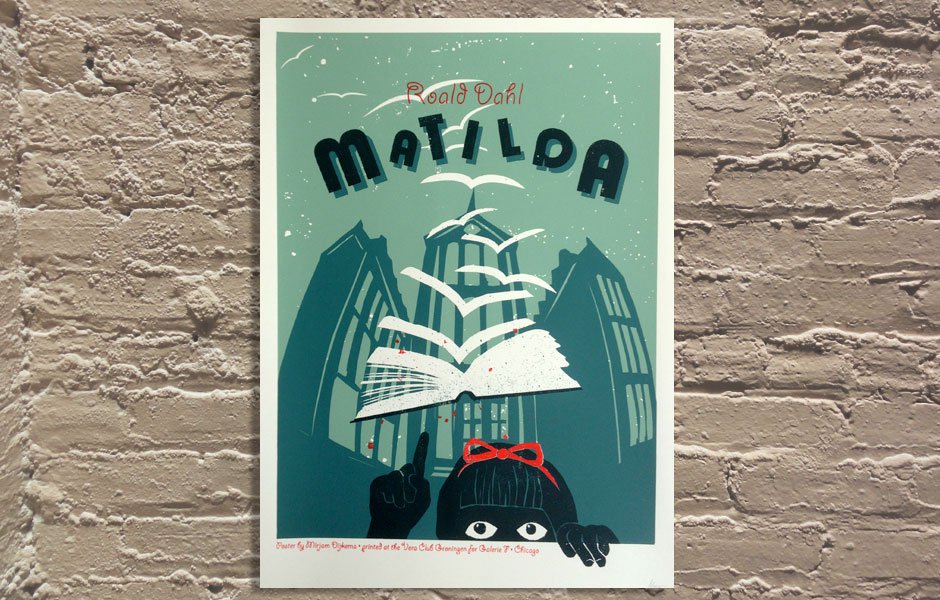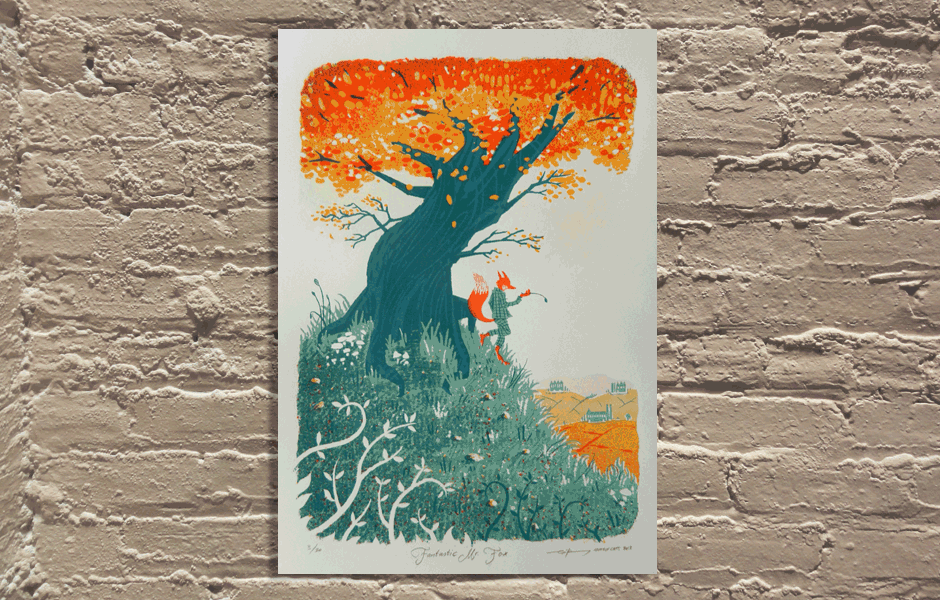My Love Letter to Roald Dahl
I’ve been thinking a lot about Roald Dahl books recently. I’ve been thinking about how books teach us, and what they teach us, especially as kids. So I’ve been thinking about Roald Dahl, because his books have a lot to teach. I’ve been thinking about friends of mine who have or are helping kids in difficult situations, situations that have parallels in the world of Dahl’s books. Then I read this article about how less kids are saying they enjoy reading Dahl’s books, although he is the author whose books most kids have read. (And that statement is faulty- they’re not saying they don’t enjoy them, just that they enjoy other books more.)
So I decided to write a fan letter, as it were; to  enumerate the reasons why I love Roald Dahl’s books, why I read them over and over to my girls, and what I hope they learn from them. (As we go along, I’m going to refer to “Roald Dahl’s books” as Roald Dahl. Obviously I didn’t know the man, I wish I did, but I’m guessing that the lessons that are laid out so clearly in his books are lessons he’d be fine with his name on.)
My history with Roald Dahl is long. James and the Giant Peach is the first chapter book I remember being read as a child. I vividly remember  laying on big cushions in the play room as mom read out loud, by turns scared, happy, concerned, mystified, thrilled. We didn’t let her stop reading, and what was supposed to be one chapter turned into the whole book that night.   James and the Giant Peach was the first chapter book I read out loud to the girls. I understood why my mom had gotten stuck as I had to read 12 chapters (30 pages) the first night to get to a stopping point that was fairly happy. The girls squirmed just like I did as they heard about Aunt Spike and Aunt Sponge and their horrible treatment of James, and I had to get to a satisfying and safe stopping place.
This is one of Roald Dahl’s strengths, and one of his biggest lessons. Life is not fair. Life is often hard. In the majority of his children’s books, the main characters are orphans and/or often live in deplorable situations. Some, like James and Matilda, are mistreated. Others, like Charlie
and Sophie
, are desperately poor or alone.George
is stuck with his horrible grandmother. Â Mr. Fox
and his family are being hunted down by mean men. And the boy in The Witches
has a whole bunch of witches trying to kill him. Â All of them are trapped in situations that they didn’t create and can’t get out of because they’re children (or, you know, foxes). I think Roald Dahl (the man, not his books) must have had a deep remembrance of what it was like to be a kid. To feel helpless and misunderstood. To feel like things that were of vital concern were trivialized by adults.
And this flows into another of his lessons- every kid is important. I was just reading in a book about yoga the difference between being important and being special. The author put forth the idea that everyone is important. Every single person on this Earth has something to accomplish, people to touch, a life to live. Knowing that we are important gives us strength and purpose. But thinking that we’re special leads us to believe that we are an exception, that the rules shouldn’t apply to us, that we are better than, that we are different.
Roald Dahl’s main characters are important. Despite their situations, despite what others say or think about them, they are vitally important. (I’m hearing the Doctor say “An ordinary man, that’s the most important thing in existence.” and “You know, in 900 years of time and space, I’ve never met anyone who wasn’t important.” ) But they’re not special. Charlie gets his golden ticket because he spends the only money he has to try for a chance, after he’s already tried and failed. James gets an adventure in the peach because he drops the bag of magic that was supposed to make HIM special, and instead makes the peach special. The boy in the Witches (can I just mention that I didn’t realize until writing this post that he doesn’t have a name? I’ve read that book at least 7 times and never noticed) finds himself embroiled in witch hunting because his grandmother knows about them, and he’s in the wrong place at the wrong time. Sophie is a regular little girl who looks out a window at just the right time to be seen by a giant. Any of these kids could have been anyone else. But they weren’t, and the story happened to them. The one of Dahl’s characters who is different is Matilda. She’s incredibly bright, teaching herself to read very early and exhibiting some other-worldly powers. But I’d argue that she’s not special in that she doesn’t believe herself entitled to anything because of her abilities.
And this leads into another Dahl lesson- good things come to those who think and who work. Every one of Dahl’s main characters is a thinker. They are curious and inventive and they dream of better things. When situations come up that are difficult, they put their minds to finding a solution. And then they work. They don’t wait for someone else to do things for them, they put in the effort to accomplish the things that need to get done.  And those efforts bear fruit, because
every action has a consequence. It may take a while, but in Roald Dahl books, the greedy, the mean, the lazy, the willfully ignorant, the bullies, all get their comeuppance. Bad begets bad, and by the end of the book, the Aunt Spikes and Sponges, the witches, the giants, the hunters, the Veruca Salts and Agustus Gloops all learn that they too are not special, that the rules  of being human do apply to them.  And the Charlies, Sophies, Matildas, and Jameses learn that good begets good, and that the more you love and the more you give, the more people you become important to.
They also learn along the way that connections with other people are what get you through your struggles. Every one of Dahl’s main characters has at least one other person that they come to trust and love. Some, like Charlie, start out with those people. Others, like Matilda, find them along the way. But every one of them learns that trials are easier when they’re shared, that working together enables you to accomplish things you can not do by yourself.
They also learn that despite hope there will be setbacks, and that despite setbacks there can be hope. Â So many kids books focus on “wonderful things will happen if you only believe” and shy away from the fact that sometimes they don’t. The moment in Charlie and the Chocolate Factory that makes me cry every time I read it is the part when Grandpa Joe has given Charlie his tobacco money, and Charlie has gone out secretly and gotten a second chocolate bar (the first being for his birthday). They open it together while everyone else is asleep, deliriously hopeful and delighted in their hope. This is the moment that we as readers have been waiting for, the moment that Charlie opens up the wrapping to find the golden ticket. But he doesn’t. There’s nothing but a chocolate bar. Their hope, no matter how strong it was, couldn’t put a golden ticket into a chocolate bar that didn’t have one. Similarly, James is given a bag of magic worms. All he has to do is swallow them, and magical, magnificent things will happen to him. And then he drops them. And we wait anxiously as he scrabbles on the ground to pick up just one- and he can’t catch one. They wriggle away faster than he can move. They are faster than he is, and no amount of hope can change that.
But despite the setbacks, despite the moments where things seem especially bleak for having been put into contrast with a moment of hope, good things come.  The golden ticket is found. The peach grows into an escape vehicle. The Queen listens. The tunnel to storehouse works.  Adventures happen, friends are made, unbelievable things are seen and experienced. And  that is perhaps the lesson I find the most important, that despite the darkness, the world is a beautiful, mysterious place, full of wonder and possibility.Â
And for that, I thank you, Mr. Dahl.
(All images from Galerie F.)





So fitting a tribute, and so timely. We our about half through reading Matilda to the girls; their first inroduction. We are all loving it, and I want to read a few more of his books to them.
I completely agree. My girls and I love reading his books. He has a way of making his outrageous stories very relatable for children.
I think my favorite this last year was when I discovered, Danny, the Champion of the World by Dahl. It is really funny and deep. I love how he caught pheasants with raisins! He is one of my favorite authors too Maryanne!